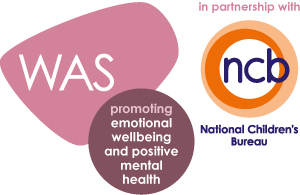A collection of dirty mugs is not the only sign that the vitality of your staffroom may be under threat. Julia Watson provides some tips for a healthier environment.

A happy, healthy staffroom is at the heart of an effective team, providing safe haven, a place of camaraderie and connection.
Sadly though, this is not always the case. Some staffrooms can become ‘toxic’, detrimental to a school’s positive ethos as colleagues fall into bad habits and unprofessional conduct.
Here are some of the markers of a toxic staffroom, and how you can work towards a more cordial environment.
Every staffroom will have one or more: a staff member who moans about everything, constantly. They’ve often been at the school a long time – sometimes in the same chair for decades. If the moaner finds others with the same mindset, this can be especially harmful to the atmosphere in the staffroom.
If you need to, have a moan, talk about your day and then move on (or better still, take the appropriate action).
How to support a moaner
For more information about happiness and productivity, see ‘The happy-productive worker thesis revisited’ by J. M. Zelenski.
It is not ok to make personal or derisory comments about colleagues. I have witnessed some brutal ego slayings over the course of my twenty-year career. It appears to me that the more challenging the environment, the closer-knit the team (and the more brutal the insults that fly).
Staffroom ‘banter’ is one thing. Personal, unpleasant or highly critical comments about colleagues in the staffroom are another thing entirely.
If inappropriate personal comments are made in your staffroom, it is important to deal with them swiftly and effectively. A headteacher friend of mine took direct action in the following way.
Michael P. Leiter and Christina Maslach co-wrote an interesting study on the ‘Impact of interpersonal environment on burnout and organizational commitment’ (Michael P. Leiter, Christina Maslach, October 1988). In the study, they monitored the effects of different types of interaction (pleasant/ unpleasant) in a professional context. Unsurprisingly, they found that pleasant interaction leads to a happier and more committed workforce.
You will know the chaos king/queen by the:
Keep your staffroom clean and functional in the following ways.
A tidy, organised staffroom is a pleasant place to be. Ricardo Mateo’s study into the ‘Effects of tidy/messy workplace on human accuracy’ deals with some interesting relevant variables, including caffeine consumption. He found that an untidy environment can have a significant negative impact on the productivity and decision-making of conscientious employees.
The staffroom is a communal space, and maintaining it is everyone’s responsibility. A healthy, happy staffroom provides a place for empathy, support and even fun, with the added bonus of being great for performance, productivity and motivation.
Positivity pays: the art of solution-focused thinking
‘Wellbeing at the heart of our school’
 Wellbeing for all
Wellbeing for allLooking to demonstrate a commitment to promoting wellbeing as a fundamental part of your school life?
The Wellbeing Award for Schools will lead you through a process of self-evaluation, action planning and accreditation.